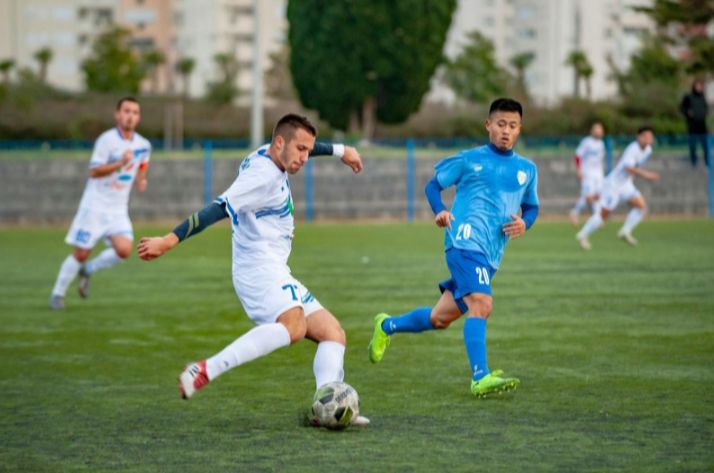By, Rasydan Akmal Rosdi
Harassment is known as creating a hostile, intimidating, or abusive environment through power, control, or intimidation. Mental or psychological harassment, also known as emotional abuse, involves behaviors that harm an individual’s mental well-being. This can include manipulation, gaslighting, and consistent belittling by others. In recent years, mental harassment frequently happens among athletes in any sports. These issues get attention across the world and they are not new. Athletes face big and unexpected pressure both inside and outside the field. They give a negative impact among athletes.
According to a McLean study in 2019, it was found that about 35 percent of elite athletes have mental health concerns. The top issues reported by athletes included feelings of burnout, depression, and anxiety.
Athletes operate under intense pressure. They often face unrealistic expectations from coaches, fans, teammates, and even themselves. “Bullying in athletics can involve coaches or peers as perpetrators. Bullying can take on different forms and have long-term consequences. Bullied athletes can experience feelings of exclusion, isolation, and low self-esteem. Some individuals who are bullied during sports can develop depression, anxiety, or acute stress disorder,” reports the McLean hospital website: (https://www.mcleanhospital.org/essential/athlete-mh#:~:text=Bullying%20can%20take%20on%20different,anxiety%2C%20or%20acute%20stress%20disorder). The relentless pursuit of perfection can take a toll on their well-being.
Firstly, there is social media influence. Sometimes athletes will be severely criticized on social media if they make a mistake. They receive threats from fans such as death threats, injuring the athlete and doxxing their personal life, home and family. For example, world cup players make a mistake by giving the ball to opponents and the opponents score through his mistake. This player received condemnation from supporters upon his mistake through social media which causes the player to be stressed and disturb him mentally.
Secondly, the mental health of athletes is affected by injury and illnesses. These problems always happen among athletes because of improper exercise and a packed schedule. Sometimes injury and illness unmask mental health issues like anxiety and depression. It puts the pressure on athletes whereby they cannot return to the field because of this problem. Injuries also can increase the risk of substance misuse as players try to self-medicate to recover quickly. For example, they take illegal substances like steroids and cause doping cases. These problems can disturb the mental health of athletes.
Lastly, there is great pressure for athletes to perform well in sports. Athletes face overpressure from coaches, staff, fans, management and sponsors to ensure that they can always perform on top. When athletes fail to achieve the standards or success expected by various parties, athletes will be stressed and depression occurs. Because of that, mental harassment happens and sometimes criticism or verbal abuse aimed at the athletes. The high expectation can always happen and if they cannot get the high expectation, it affects athletes mental health.
There are many ways to prevent mental issues among athletes. These issues relate to the Sustainable Development Goals (SDG) of SDG 3: Good Health and Well-Being that need to be achieved. To achieve this Sustainable Development Goals (SDG), these issues should be prevented. Among them are :
- Support the athletes even though they win or loses:
These athletes need support from fans so they are enthusiastic to perform well in sports. If the athletes make a mistake that can cause a loss, do not criticize them too much because it will decrease their motivation. The supporters always need to support them no matter what the situation.
- Give the education and spread awareness:
The institution needs to give education and awareness to people to ensure they avoid harassment against athletes. For example, make a poster about the negative impact of disturbing their mental health. Education and awareness can be spreaded and these issues can be preventes.
- Protect the athletes:
The coaches, management and staff are responsible to protect their athletes from harassment that affects their mental health. They also need to appreciate these athletes and give them moral support so they will always be motivated. If the athletes received the criticism, give them moral support.
Therefore, all people from all ages need to prevent mental harassment among athletes. These issues relate to SDG 3: Good Health and Well-Being. Mental harassment issues among athletes is a big crisis that happened many years ago. By giving support and a good environment, the athletes will be motivated to give contribution and good performance in sports both on and off the field. It is hoped that athletes would be able to compete with the same level of confidence in their good mental health as they have in their physical talents as awareness increases and always receive the support from various societies.***
- Islamic University VC Engages with IIUM Community on Integrating Shariah Law into Bangladesh’s Legal System - January 28, 2026
- SISCO Launches Certified Course on Visionary Leadership and Community Engagement at IIUM - January 28, 2026
- Memorandum of Understanding (MoU) Signing Ceremony between IIUM and Aafiyat Holdings Sdn. Bhd - January 28, 2026
